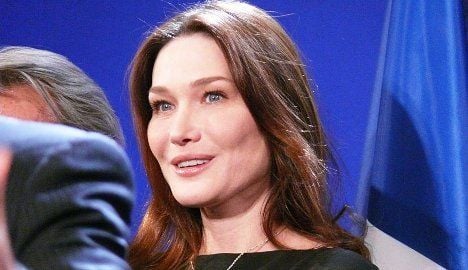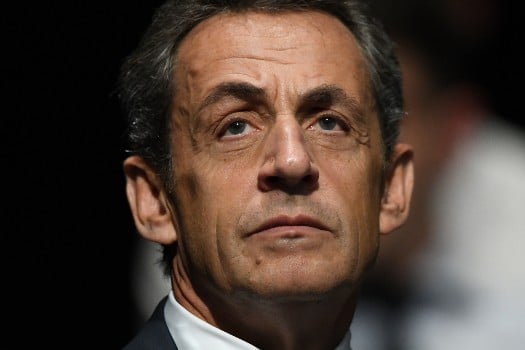Bruni-Sarkozy’s baby daughter is her second child and Sarkozy’s fourth, but a first for France as no president in modern history — all of them men — has fathered a legitimate child while in office.
She had her first child Aurelien with philosopher Raphael Enthoven in 2001.
Bruni-Sarkozy became France’s “first lady” after her marriage to the president in 2008, with some critics accusing the president of seeking to bolster his “Bling Bling” lifestyle.
A successful singer, who speaks fluent Italian, French and English, has since sought to protect her private life since marrying Sarkozy, who leads France’s right wing and who is struggling in opinion polls.
Throughout her pregnancy, which was never officially announced, she has largely kept away from the prying eyes of the world’s press.
At a summit in May of leaders from the Group of Eight developed economies in the northern French port of Deauville, her lightly-rounded frame was photographed as she welcomed leaders’ wives.
On September 17th she made another public appearance during an open day at the Elysee Palace.
“I’m superstitious … I didn’t talk about it,” she said in a recent interview with the BBC, adding that the pregnancy was in any case “not interesting for French people.”
“We’re going through an economic crisis,” she told Madame Figaro magazine a few days later to explain her discretion.
Her Italian industrialist family moved to France when Carla was just five, at a time when wealthy Italians faced a real threat of kidnapping from the left-wing militant group the Red Brigades.
Before marrying Sarkozy, her name had been linked romantically to a series of global stars, including Rolling Stones singer Mick Jagger and guitarist Eric Clapton.
Bruni was the youngest of three children; the eldest, a brother, died of cancer in 2006, while her elder sister, Valeria Bruni Tedeschi is an actress.
Following her marriage, Bruni took to charity work including in the fight against AIDS and illiteracy, while continuing to record songs, sometimes playing the guitar Michelle Obama gave her in 2009 as “a sign of friendship.”
Her third album, “Comme si de rien n’etait” (As if nothing had happened), came out in July 2008, but her next musical instalment has been postponed to autumn 2012 “because of the presidential election,” according to her friends.
She also did not go to the Cannes Film Festival in May for the premiere of Woody Allen’s “Midnight in Paris” in which she played her first albeit brief onscreen role, that of a museum guide.
Her desire to stay away from the limelight is matched by the interest that the rest of the world has in the French first lady, an international star ever since her time as a model.
A dumbfounded former minister said recently: “One day I was in the back of beyond in China and I asked the local Communist Party official what he wanted me to send him from France. ‘A signed copy of Carla’s latest album,’ he said.”
Ever since she debuted internationally as first lady during a trip to London in March 2008, wowing the world with her refined wardrobe and respect for the Queen, Bruni has been a darling of crowds and photographers.
Local newspapers often joke that “Carla has arrived, accompanied by her husband.”
With seven months to go before her husband is expected to stand in the presidential election, Bruni was asked recently how she would cope with the expected ferocious campaign, with her husband’s popularity already battered.
“I don’t know if my husband will campaign! As to human ferocity, I’ve known about that since I was at primary school,” she said.



 Please whitelist us to continue reading.
Please whitelist us to continue reading.
Member comments